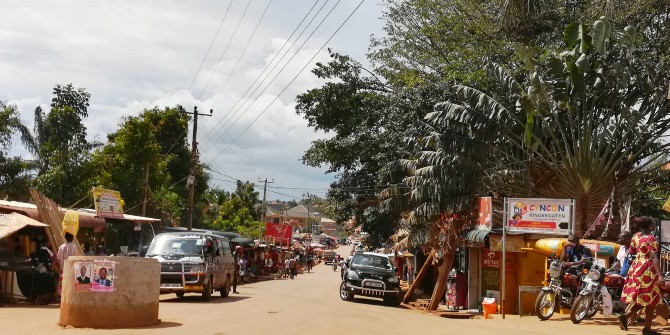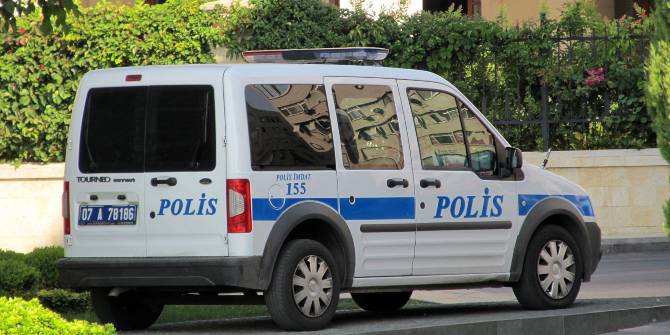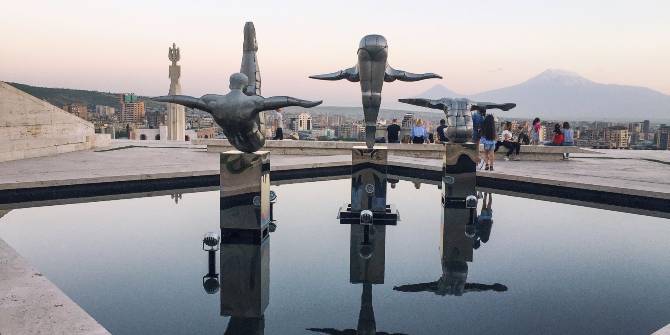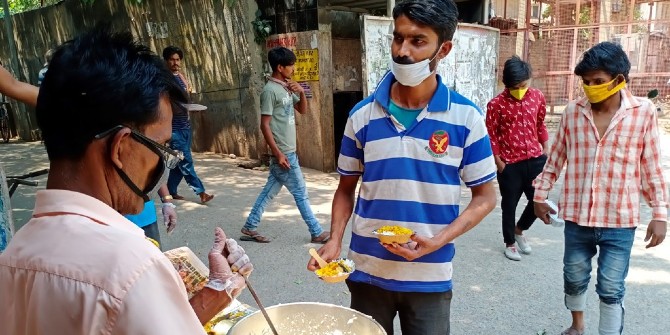Churches have been active in responding to the pandemic in West Nile, Uganda, but they are finding it difficult to physically reach people and are running out of money. Liz Storer (LSE) describes the role of faith leaders, resistance to lockdown and suspicions surrounding migrant Chinese workers.
In the West Nile region of Uganda, people have been listening to presidential directives and attempting to enforce social distancing and orders to stay at home. In the early weeks, there were calls from local government and the Catholic church to provide clearer directives, and greater enforcement of the lockdown.
Recently, there have been calls to enforce directives in refugee settlements along the Uganda/ South Sudan border. The Minister for Local Government also visited Arua, warning that money dispatched to the district should be used appropriately in COVID-19-related relief efforts.
As in Gulu and South Sudan, for many of the West Nile’s people the lockdown has caused significant issues for food security, with the majority dependent on subsistence agriculture and small-scale trade in local markets. Some local government officials have told people not to ‘wait for the government’ and to find ways of making do by themselves.
There has been resistance to lockdown orders from young men, particularly from boda-boda drivers and those who depend on daily work for a living. Reportedly, the police and military were forcibly caning lockdown violators. There has also been a policing of journalists following their suggestions that donations received by local governments through the COVID-19 Task Force – which should be distributed by LCs – have not reached vulnerable people.
In the early weeks of the lockdown, there were widespread suspicions, particularly among young men in Arua town, that the move was an act of political manipulation and a conspiracy designed to delay the forthcoming election. These fears were heightened since there were no COVID-19 cases reported in Arua in the early months of the pandemic. Lately, cases among truck drivers were confirmed at Pakwach, with those who tested positive being transported by military escort to Arua Referral Hospital.
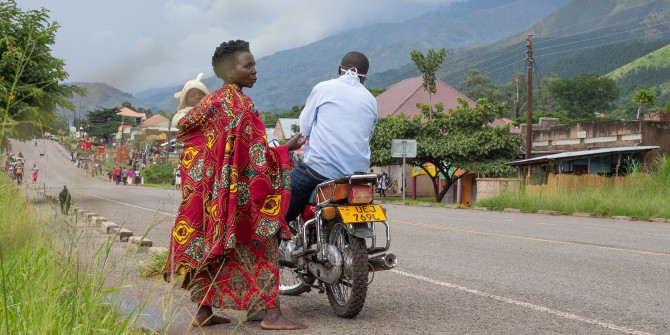
There have also been fears that Chinese construction workers, a significant developmental presence in the region, may spread COVID-19. Reportedly, many workers were evading quarantine. Similarly to South Sudan, there is a sentiment that COVID-19 is brought by rich outsiders into the district. Indeed, it is also often called a ‘Chinese sickness’.
There has also been widespread resistance involving elders (demonstrating via a protest with bows and arrows) to the establishment of a quarantine centre in Arua, the regional capital. Similarly, in Moyo Town, the choice of isolation centre for COVID-19 angered the community to the extent that a mob burnt down the home of the District Chairperson seen as responsible for commissioning the centre. People have promised to seek revenge in the 2021 elections by voting him out of office. Over the course of the pandemic, this resistance has lessened. By late May, Arua quarantine centre (with its capacity of 51) had reportedly run out of space to admit new cases.
In Arua, Catholic and Anglican churches have been active in delivering public health messaging, often organising congregations through WhatsApp. The most popular radio stations in West Nile are funded by Christian Diocese, so this is a major source of information. Perhaps for this reason, many understand COVID-19 to be a curse from God. Islamic leaders have also propelled similar explanations: ‘The first thing is Allah must be very annoyed with us because the world cannot be punished without a crime, so it’s a punishment’ declared a local sheik.
While there has not been a uniform response from Christian institutions, some churches have also organised prayers and collected and distributed tithes, focusing on the vulnerable. Reportedly, however, community organising is increasingly difficult as churches themselves lack the offertory which they are not receiving during lockdown. Moreover, the restrictions on groups congregating together has made it difficult for the church to initiative collective advice, or to distribute essential goods. Since radio stations continue to be operated by Christian Diocese, these stations have remained important sources of information in lieu of other activities. In October, the bishop of Madi and West Nile (Anglican) diocese advised his flock not to use the pandemic as an excuse to “shun God”, and forgo contributions to local churches.
This post represents the views of the author and not those of the COVID-19 blog, nor LSE. It is an edited extract from Observing COVID-19 in Africa through a Public Authorities Lens, a working paper from the Firoz Lalji Centre for Africa, LSE. This research was funded by British Academy, Knowledge Frontiers Grant, hosted at the FLCA.


